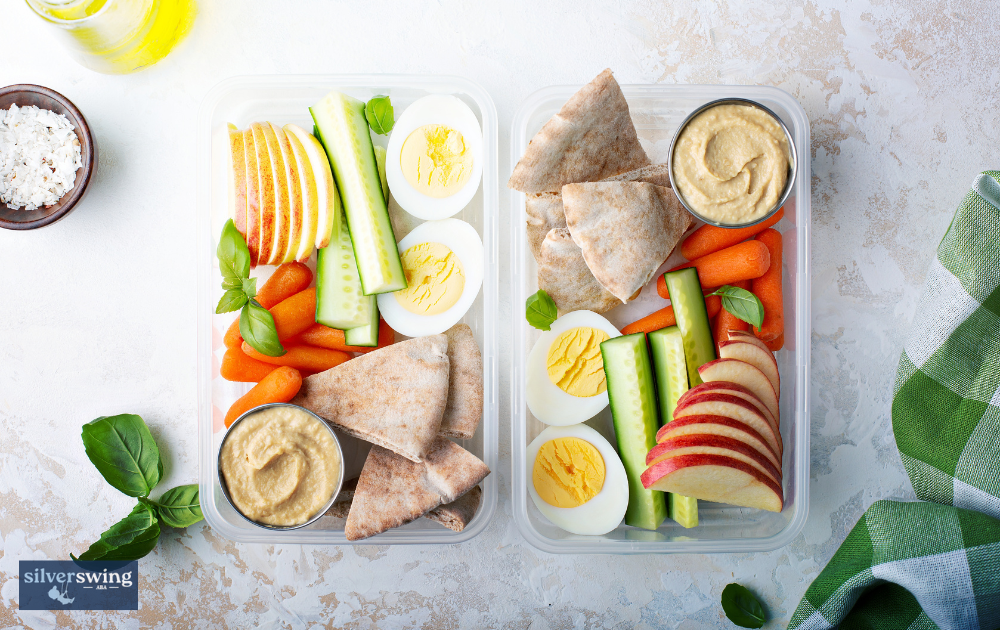For parents of autistic children, ensuring that their child has access to nutritious, safe, and enjoyable food is a top priority. Children with autism spectrum disorder (ASD) often have specific sensory sensitivities, which can influence their food preferences. Packaged foods, when chosen wisely, can be a convenient and helpful solution for busy parents. But how do you select healthy packaged food options that meet your child’s unique needs?
In this article, we will explore tips on choosing healthy packaged foods for autistic children, along with some recommended options that are both nutritious and suitable for sensory-sensitive kids.
1. Understand Sensory Sensitivities
Children with autism often experience sensory processing differences. They may be sensitive to certain textures, flavors, colors, or even the packaging of food. Before introducing a new food, take note of your child’s preferences:
- Texture: Some children prefer crunchy foods, while others may favor smooth or soft textures. Knowing this can help narrow down food options.
- Flavor and Smell: Autistic kids may have aversions to strong flavors or smells. Opt for milder, natural flavors, avoiding overly processed or artificial options.
- Color and Appearance: Visual appeal is important. Packaged foods with natural colors or those that align with your child’s visual preferences can be more easily accepted.
2. Prioritize Whole, Simple Ingredients
Look for packaged foods that prioritize whole ingredients without excessive additives, artificial preservatives, or sugars. Choose items that are minimally processed, as they retain more nutritional value. Examples include:
- Single-ingredient snacks like dried fruits, nuts, or seeds.
- Whole grain crackers or rice cakes with limited additives.
- Vegetable-based chips that offer fiber and nutrients without unnecessary fillers.
3. Focus on Nutrient Density
Autistic children, like all children, need a balanced diet that provides essential nutrients for growth and development. However, they may have limited food choices, so it’s important to find packaged foods that are nutrient-dense. Seek out snacks high in:
- Protein: Choose protein-rich snacks like nut butter packets, roasted chickpeas, or cheese sticks. Protein supports muscle growth and keeps children fuller for longer.
- Fiber: Fiber aids digestion and can be found in foods like whole grain crackers, fruit bars, and certain types of granola.
- Healthy Fats: Omega-3 fatty acids, found in seeds, nuts, and certain granola bars, are particularly beneficial for brain health.
- Vitamins and minerals: Opt for fortified foods or those naturally rich in vitamins, such as fruit-based snacks or veggie chips.
4. Gluten-Free, Dairy-Free, and Other Special Diet Options
Many autistic children follow specific diets such as gluten-free, casein-free (GFCF), or dairy-free due to sensitivities or behavioral observations from parents. Luckily, there are plenty of packaged foods that cater to these needs. Look for gluten-free grains, dairy-free yogurts, and allergy-friendly snacks that align with your child’s dietary requirements.
Examples of specialized options:
- Gluten-free crackers and pretzels made from quinoa, rice, or almond flour.
- Dairy-free yogurts from coconut, almond, or soy milk.
- Snack bars free from common allergens such as gluten, soy, dairy, and nuts.
5. Packaging and Portion Control
The packaging of food can also affect its appeal to autistic kids. Some may prefer foods in resealable containers, while others like single-serving portions. To reduce waste and promote portion control, consider buying in bulk and repackaging into smaller portions at home using reusable containers.
6. Recommended Healthy Packaged Foods for Autistic Kids

Here are some healthy packaged food options that cater to common dietary preferences while offering sensory-friendly textures and flavors:
- Crunchy Snacks:
- Veggie straws made from real vegetables.
- Freeze-dried fruit like apple slices, banana chips, or strawberries.
- Lightly salted popcorn or rice cakes.
- Smooth and Creamy:
- Dairy-free yogurt pouches (almond, coconut, or oat-based).
- Smooth nut or seed butters in portioned packets.
- Applesauce cups or squeezable pouches with no added sugars.
- Protein-rich:
- Roasted chickpeas or lentil snacks.
- Organic turkey jerky or meat sticks.
- Hard-boiled egg packs or string cheese for dairy-tolerant kids.
- Gluten-Free and Special Diet:
- Gluten-free granola bars made from oats, dried fruit, and seeds.
- Almond or coconut flour-based crackers.
- Non-GMO, gluten-free veggie chips.


